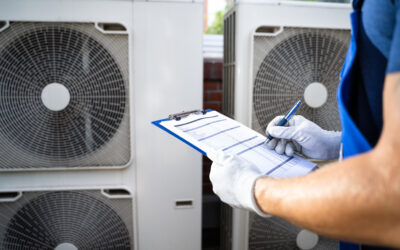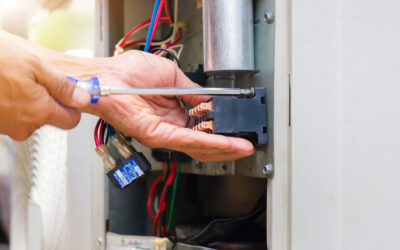
As the temperature drops and winter approaches, homeowners face the crucial decision of selecting the most efficient and cost-effective heating solution for their homes. Two popular options are furnaces and heat pumps, each with its unique set of advantages and considerations. If you’re unsure which system is best suited for your needs, read on to discover the key differences between a furnace and a heat pump to make an informed decision for your home.
Operating Principle:
Furnace: Furnaces operate by burning fuel (commonly natural gas, propane, or oil) to generate heat. The heated air is then distributed throughout the home via a network of ducts.
Heat Pump: Heat pumps work by transferring heat from one place to another. In colder months, they extract heat from the outdoor air and transfer it indoors. In warmer months, the process is reversed to provide cooling.
Efficiency:
Furnace: Furnaces are known for their high heating efficiency, especially in extremely cold climates. Newer models come with advanced features such as variable-speed blowers and electronic ignition, further enhancing efficiency.
Heat Pump: Heat pumps are highly efficient for moderate climates. However, their efficiency can decrease in extremely cold temperatures, making them less ideal for regions with harsh winters unless they are equipped with supplemental heating elements.
Climate Suitability:
Furnace: Furnaces are well-suited for colder climates where temperatures can drop significantly below freezing. They provide reliable and consistent heating even in the coldest weather conditions.
Heat Pump: Heat pumps are more effective in milder climates. While they can still operate in colder temperatures, their efficiency may decline, and supplemental heating may be required in extremely cold weather.
Installation and Cost:
Furnace: Furnaces are generally more affordable upfront, especially if your home already has a ductwork system in place. The cost of fuel (gas, oil, or propane) can vary, affecting long-term operational expenses.
Heat Pump: Heat pumps may have a higher upfront cost, but they can be more cost-effective in the long run, especially in regions with moderate climates. They also provide both heating and cooling functions, potentially saving on the need for a separate air conditioning system.
Maintenance:
Furnace: Furnaces require regular maintenance, including filter changes, inspection of burners, and cleaning of ducts. Neglecting maintenance can lead to reduced efficiency and potential safety issues.
Heat Pump: Heat pumps generally have lower maintenance requirements. Regular checks on the outdoor unit and the refrigerant system are recommended, but the absence of combustion processes simplifies maintenance.
Choosing between a furnace and a heat pump depends on various factors, including your local climate, budget, and personal preferences. Furnaces excel in colder climates, while heat pumps are energy-efficient in milder conditions. Assess your specific needs, consider long-term costs, and consult with HVAC professionals to make the best decision for your home’s heating needs. Whether you opt for the reliability of a furnace or the versatility of a heat pump, a well-informed choice will keep your home comfortably warm throughout the winter months.









